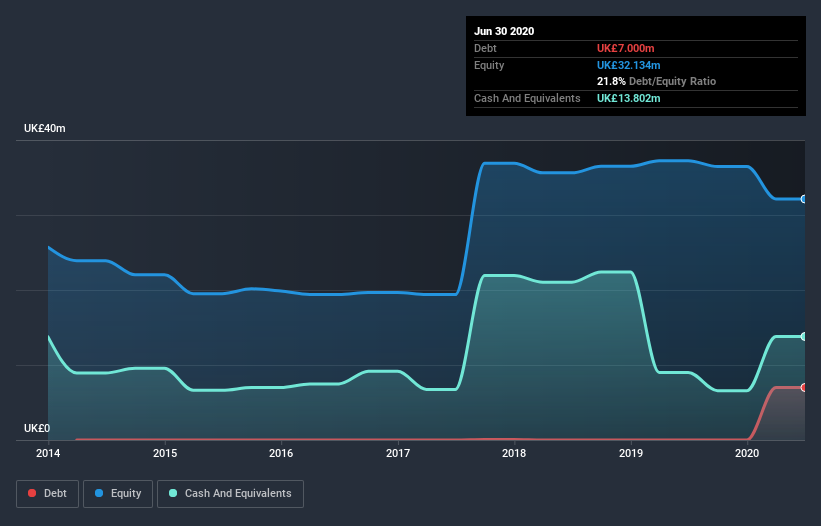TP Group (LON:TPG) Has Debt But No Earnings; Should You Worry?
Some say volatility, rather than debt, is the best way to think about risk as an investor, but Warren Buffett famously said that 'Volatility is far from synonymous with risk.' So it might be obvious that you need to consider debt, when you think about how risky any given stock is, because too much debt can sink a company. Importantly, TP Group plc (LON:TPG) does carry debt. But the more important question is: how much risk is that debt creating?
When Is Debt A Problem?
Generally speaking, debt only becomes a real problem when a company can't easily pay it off, either by raising capital or with its own cash flow. If things get really bad, the lenders can take control of the business. While that is not too common, we often do see indebted companies permanently diluting shareholders because lenders force them to raise capital at a distressed price. Of course, the upside of debt is that it often represents cheap capital, especially when it replaces dilution in a company with the ability to reinvest at high rates of return. When we think about a company's use of debt, we first look at cash and debt together.
View our latest analysis for TP Group
How Much Debt Does TP Group Carry?
You can click the graphic below for the historical numbers, but it shows that as of June 2020 TP Group had UK£7.00m of debt, an increase on none, over one year. But it also has UK£13.8m in cash to offset that, meaning it has UK£6.80m net cash.
How Healthy Is TP Group's Balance Sheet?
Zooming in on the latest balance sheet data, we can see that TP Group had liabilities of UK£20.7m due within 12 months and liabilities of UK£14.1m due beyond that. Offsetting this, it had UK£13.8m in cash and UK£13.1m in receivables that were due within 12 months. So its liabilities total UK£7.94m more than the combination of its cash and short-term receivables.
Given TP Group has a market capitalization of UK£50.5m, it's hard to believe these liabilities pose much threat. However, we do think it is worth keeping an eye on its balance sheet strength, as it may change over time. Despite its noteworthy liabilities, TP Group boasts net cash, so it's fair to say it does not have a heavy debt load! The balance sheet is clearly the area to focus on when you are analysing debt. But you can't view debt in total isolation; since TP Group will need earnings to service that debt. So when considering debt, it's definitely worth looking at the earnings trend. Click here for an interactive snapshot.
In the last year TP Group wasn't profitable at an EBIT level, but managed to grow its revenue by 49%, to UK£65m. With any luck the company will be able to grow its way to profitability.
So How Risky Is TP Group?
Although TP Group had an earnings before interest and tax (EBIT) loss over the last twelve months, it generated positive free cash flow of UK£1.7m. So taking that on face value, and considering the net cash situation, we don't think that the stock is too risky in the near term. The good news for TP Group shareholders is that its revenue growth is strong, making it easier to raise capital if need be. But that doesn't change our opinion that the stock is risky. When analysing debt levels, the balance sheet is the obvious place to start. However, not all investment risk resides within the balance sheet - far from it. Case in point: We've spotted 1 warning sign for TP Group you should be aware of.
When all is said and done, sometimes its easier to focus on companies that don't even need debt. Readers can access a list of growth stocks with zero net debt 100% free, right now.
This article by Simply Wall St is general in nature. It does not constitute a recommendation to buy or sell any stock, and does not take account of your objectives, or your financial situation. We aim to bring you long-term focused analysis driven by fundamental data. Note that our analysis may not factor in the latest price-sensitive company announcements or qualitative material. Simply Wall St has no position in any stocks mentioned.
Have feedback on this article? Concerned about the content? Get in touch with us directly. Alternatively, email editorial-team@simplywallst.com.

 Yahoo Finance
Yahoo Finance 
